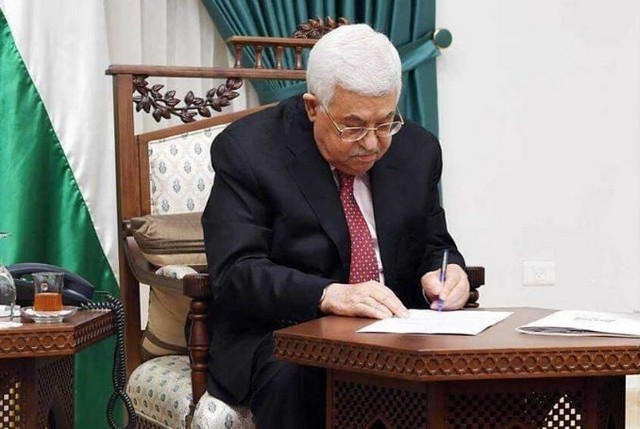By Ramona Wadi
It is a pity that Palestinian Authority leader Mahmoud Abbas wasted so much time in declaring that no one has the right “to speak on behalf of the Palestinian people.” The statement was made within the context of the US-brokered deal normalizing relations between the United Arab Emirates and Israel, which has allegedly stalled annexation of land from the occupied West Bank for an indefinite period.
The deal exacerbates Palestine’s isolation in the region; in particular, it signifies the start of a tacit consensus for when Israel decides it is time to take up annexation once again. For the Palestinian people, another round of “waiting” has been initiated – a tactic much favored by the international community when it comes to brushing aside Palestinian political demands.
Israeli Prime Minister Benjamin Netanyahu has not ruled out annexation; the only change is that now there is a context to the earlier, vague statements. Normalization of relations is the easiest option and the one that is likely to ward off unwanted scrutiny for Israel.
Normalization should not have come as a surprise, after all, Netanyahu had repeatedly stated that Israel would be able to build ties with Arab countries and Gulf states since the Palestinian cause was no longer a top priority in the region. Is it a surprise, seeing that the Arab Peace Initiative of 2002 promoted the concept of normalization, albeit tied to the two-state compromise?
Yet prior to the announcement, the PA had no qualms about promoting the Arab Peace Initiative. Until last month, this paradigm was endorsed by PLO Secretary-General Saeb Erekat, as part of the PLO’s “national program”.
If “national program” was replaced by “international impositions”, a clearer truth would emerge. The PA’s reaction to the UAE-Israeli deal is to be expected, yet it is also making an exception that excludes all the impositions upon the Palestinian people that have altered the Palestinian cause beyond recognition. The PA never turned inwards to consult with the Palestinian people.
It blindly worked its way through international frameworks and resolutions, following an illusion of statehood that never happened, because it was created to promote the international narrative on Palestine.
Not only has the PA failed to promote the Palestinian narrative and political demands. It allowed the international community to determine what Palestine should be, particularly through its endorsement of the two-state compromise and concessions regarding the Palestinian right of return. With each loss, the PA motivated itself to work towards further losses, alongside leaders and countries that pay duplicitous lip service to Palestinians.
France, once deemed an ally due to aiding Palestinians in drafting UN resolutions, has welcomed the normalization of relations between the UAE and Israel. What has the PA achieved for Palestinians other than accentuating and promoting further loss of territory and a steady erosion of political rights?
How will the PA respond to this turn of events? Another wasteful international conference? Lobbying for the defunct two-state compromise? The Palestinian people are being forgotten even within the context of this normalization deal.
Erekat has already opined that the UAE-Israeli agreement will “kill” the two-state compromise. That the PA can regularly rise up to the occasion to fail Palestinians is a macabre spectacle, beyond any political embarrassment.
Ramona Wadi is a staff writer for Middle East Monitor, where this article was originally published. She contributed this article to the Palestine Chronicle.
25 August 2020
Source: www.palestinechronicle.com

